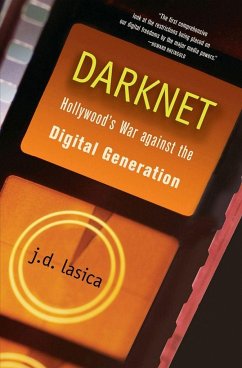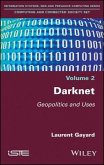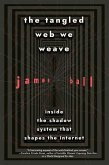"An indispensable primer for those who want to protect their digital rights from the dark forces of big media." -Kara Swisher, author of aol.com The first general interest book by a blogger edited collaboratively by his readers, Darknet reveals how Hollywood's fear of digital piracy is leading to escalating clashes between copyright holders and their customers, who love their TiVo digital video recorders, iPod music players, digital televisions, computers, and other cutting-edge devices. Drawing on unprecedented access to entertainment insiders, technology innovators, and digital provocateurs-including some who play on both sides of the war between digital pirates and entertainment conglomerates-the book shows how entertainment companies are threatening the fundamental freedoms of the digital age.
Hinweis: Dieser Artikel kann nur an eine deutsche Lieferadresse ausgeliefert werden.
Hinweis: Dieser Artikel kann nur an eine deutsche Lieferadresse ausgeliefert werden.
Rapid-fire advances in technology have transformed home entertainment. Not only can we store hours of television programming and music on hard drives, software has made it easy to create our own movies and songs, splicing and sampling professional-grade material into amateur productions. Entertainment conglomerates are understandably concerned, but in online journalist Lasica's reporting on the culture clash over digital distribution and remixing, corporations are simplistically portrayed as dinosaurs intent on stifling the little guy's creative freedom in order to protect their profit margins. The characterization is not entirely unmerited, but the deck feels unfairly stacked when "Big Entertainment" honchos are juxtaposed with a preacher who illegally copies and downloads movies so he can use short clips for his sermons. Similarly, Lasica infuses the allegedly inevitable triumph of "participatory culture" with a sense of entitlement and anti-corporate bias that he never fully addresses. Lasica's interviews are far-ranging, and he provides a cogent analysis of the broad problems with America's outdated legal framework for dealing with intellectual property rights and the need for the entertainment industry to adapt to new technologies. Too often, though, he falls back to an alarmist tone. With so many other works addressing this issue from both sides, it will be hard for Lasica's book to stand out from the pack. (May 13) (Publishers Weekly, April 11, 2005)








